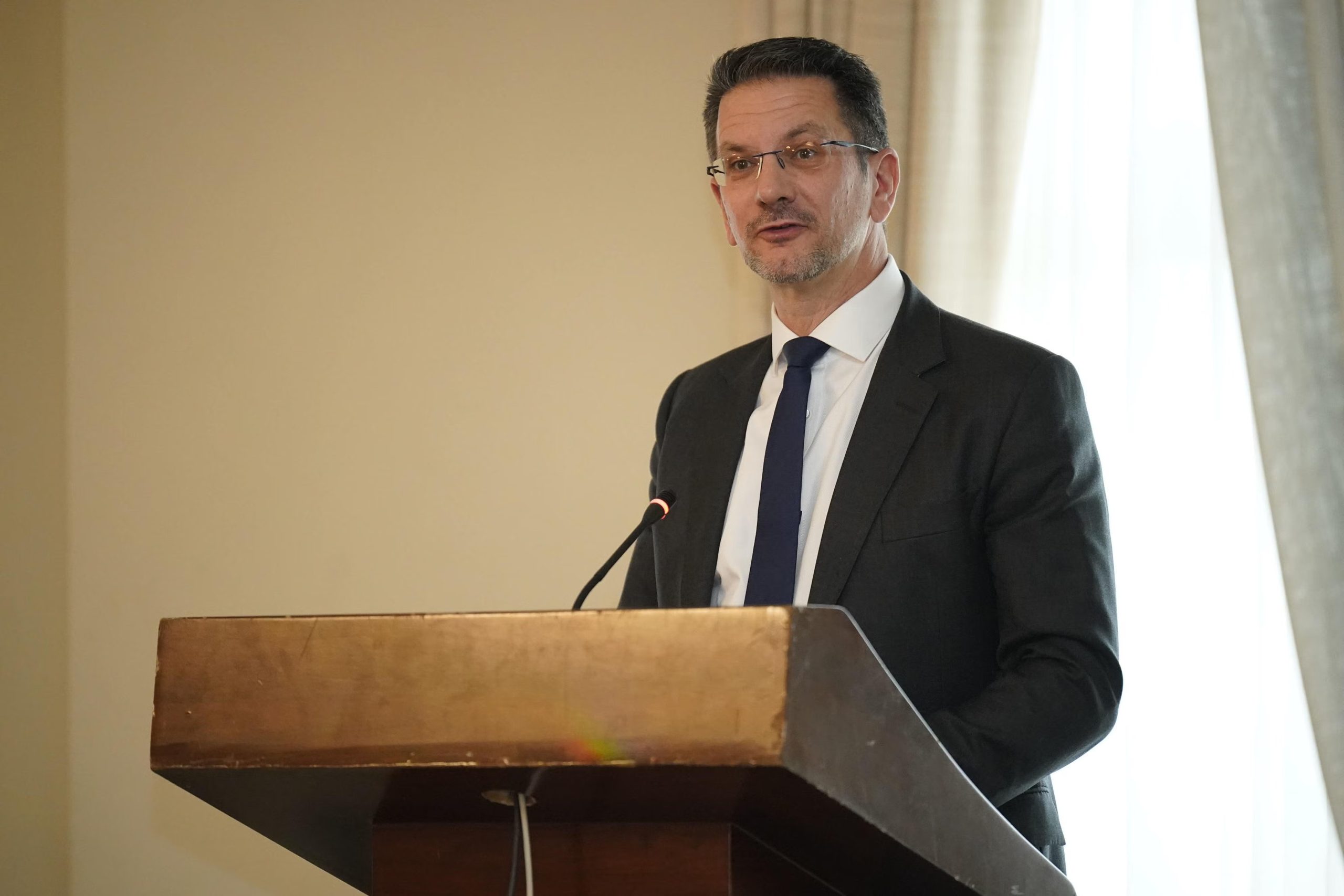Recently, Steve Baker, the Minister of State for Northern Ireland, expressed the view that any potential border poll should require a supermajority. This would potentially require 60% or more of the population of the six counties to vote in favour of unification in the event of such a poll.
This view is not a new one, nor is it one uniquely expressed by unionists and British politicians. So what is the issue?
The first of course is a lesson in history and geography. In 1918, a super-majority of the Irish people did vote for an all-Ireland republic, with 69.5% of seats going to Sinn Féin. It was only after this democratic expression was forcibly crushed by three years of British terror, and the enforcement of the Anglo-Irish Treaty under the threat of “immediate and terrible war”, that the current status quo emerged on the island.
The creation of the northern state itself was an act of national gerrymandering. The borders of the six counties were not decided on any sort of national preference; otherwise the counties of Fermanagh and Tyrone would have gone entirely into the Free State.
The six county state as it is constituted was drawn with one purpose in mind: to ensure continued unionist and British control over the largest amount of territory possible. When the northern state was invented in 1921, Catholics represented little more than 1/3 of the population. Partition itself was intended to maintain a supermajority in a gerrymandered statelet.
Even today, when national sentiment has subsided in parts, the overwhelming majority of the Irish people support a united Ireland. Any proposals regarding supermajorities in the six counties is merely perpetuating partition under a warped idea of democracy.
Even more so, the entire concept of a border poll even requiring 51% in an already gerrymandered part of Ireland should be brought into question.
So what’s the matter then? Is this talk about a supermajority not par for the course?
The issue arises over the fact that ultimately, responsibility for any hypothetical border poll rests squarely with the Secretary of State for Northern Ireland (Chris Heaton-Harris at time of writing), not to be confused with the Minister of State, who works under the former.
It is purely within the remit for the Secretary of State to decide when to hold a border poll:
“2. Subject to paragraph 3, the Secretary of State shall exercise the power under paragraph 1 if at any time it appears likely to him that a majority of those voting would express a wish that Northern Ireland should cease to be part of the United Kingdom and form part of a united Ireland.”
This supposedly democratic means to achieve unification is barred behind the decision of an unelected British minister. It would be up to them, and their perception of the situation in Ireland, to decide when to hold a poll.
If a Secretary of State was of the opinion of Steven Baker, what would prevent them withholding a border poll? Certainly consecutive British governments have made it clear that they have no interest in holding a poll; both Labour and Conservative politicians have rubbished the idea completely.
What sort of compromises and concessions could be leveraged out of this situation? No doubt we have seen plenty proposed in recent years: Irish re-entry to the Commonwealth, a new national anthem, a new flag, and some have suggested that entry into NATO should be one of the red lines.
Sinn Féin, the main cheerleaders for a border poll, have also been showing themselves to be a safe pair of hands for the international market through their repeated reassurances towards landlords and businesses.
Their recent hesitancy to support the expulsion of the Israeli ambassador certainly raises questions about their willingness to challenge American interests in Ireland.
Concessions or not, a new Ireland will come about. Certainly as socialist-republicans we are entirely in favour of building a different kind of Ireland out of the rotten states that we have at present, but further concessions to imperialism should not be entertained as part of that.

